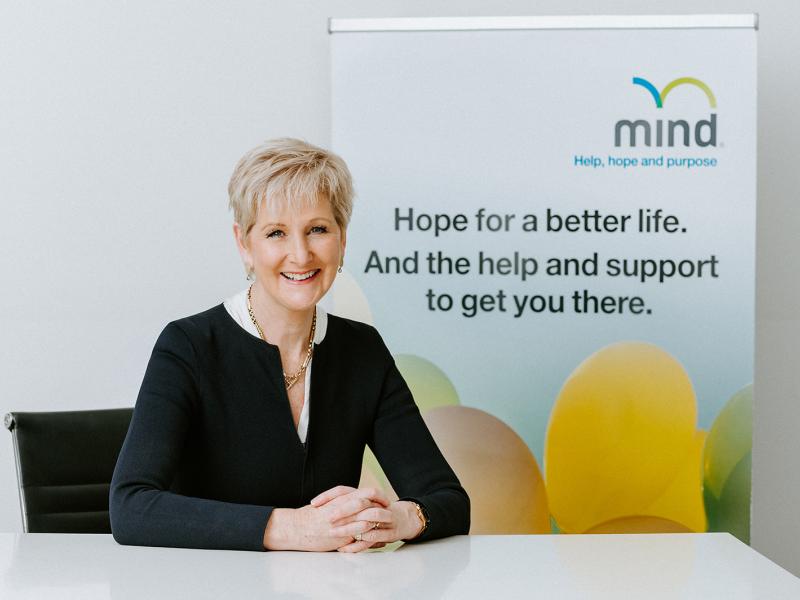By Gill Callister – CEO Mind Australia
As mental health week comes around again, I find myself reflecting on how much more awareness of mental health there is in the community and how far we’ve come. It appears that the dial is shifting about common mental health disorders, but the community still doesn’t know a lot about people who experience a disability arising from mental health challenges. Largely absent from public commentary, people with psychosocial disabilities can be misunderstood and not have their voices heard.
Psychosocial disability is a term which arose as the National Disability Insurance Scheme (NDIS) came into being. The term refers not to a diagnosis of mental illness but to the functional impact and barriers which may be faced by someone living with a mental health condition, such as living independently in the community.
I have seen first-hand how the NDIS has been transformative for people with psychosocial disability. Clara, an NDIS participant told us that; “the NDIS has given me courage and taught me to try a lot of new things”. It provides an opportunity for people to access psychosocial support – like the kind provided by Mind Australia – which helps them rebuild and maintain connections, manage daily tasks, engage with education and employment, and participate fully in the community.
Julian told us about how his NDIS supports helped him in achieving his goals, which included things like “going to the movies, playing golf and powerlifting so I can build up my confidence and fitness”.
But not everyone’s experience with the NDIS is positive. For some people, and especially those with psychosocial disability, accessing the NDIS is challenging.
